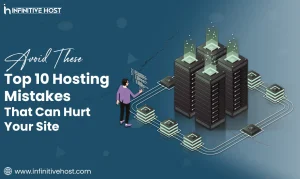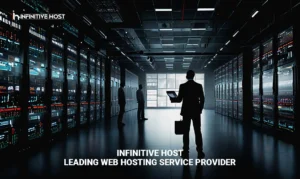Moving your clients’ websites from one hosting platform to another is not without its challenges. Downtime, layout, and display difficulties are common causes. Though it may seem obvious, we all forget to clear our browser’s cache at some point. Here are a few friendly reminders and helpful hints if you run into issues with your web server.
Some Common Web Hosting problems :
- Low Level of Security:
In certain cases, web hosting providers can’t secure your data from being hacked or recognise theft risks. On the other hand, others may purposefully instil fear in their customers to get hosting orders. As a result, a web hosting company’s consumers must be reassured that using their service to do business is completely safe and secure. More consumers are necessary for a web hosting company to thrive. Only when clients are able to trust and have faith in the web hosting company will it gain additional customers.
As a result, you should check to see if the web hosting provider you’re considering offers the amount of protection your website requires before making a decision. You should only choose a web hosting business if you are happy with its security policies.
2. Excessive Cost:
You may be surprised to learn that although some firms provide free hosting, others charge exorbitant fees. Before you are sucked into an offer that isn’t real, examine the following things. Most firms only provide services up to the price they charge for them. If a company offers free hosting, you should look into what they stand to gain from you, such as advertising space or the purchase of other items you may utilise. Because of this, you should also check to see whether you can upgrade your hosting plan in the future if you need more bandwidth and storage space.
3. Slow Navigational Speed:
A website needs to have rapid navigation in order to attract more visitors. The web hosting provider significantly impacts how quickly a website may be navigated. Users will leave a site if it takes a long time to load and a long time to navigate its content. Additionally, the site’s position in the search results will be reduced as a result of this. As a result, the site’s overall traffic will be significantly reduced.
Network latency is the amount of time it takes to navigate a website. Make sure the web hosts you choose employ excellent hardware and support teams to lower their network latency as much as possible before signing up with them.
Caching static elements of your site will allow them to be available at optimum rates in multiple places. This might have a significant impact on your site’s performance, especially if you have visitors from around the globe. As an additional option, you should see whether your web server offers a Content Delivery Network (CDN).
4. Server Availabilty:
WordPress websites hosted on your server may go down if your server is unreliable. A client’s bottom line will suffer due to this, as visitors won’t be able to access them. If your agency is responsible for a customer losing all of their revenue, they will no longer trust you and will look for a new agency. Using multi-container servers that guarantee uptime is the finest and most dependable solution to these kinds of WordPress hosting concerns. When a website experiences a spike in traffic, more containers are immediately deployed to meet up demand. It’s also possible to use numerous load-balanced containers to ensure that your WordPress site is constantly accessible, even in the event of outages.
5. Vulnerable Servers:
One of the most worrying aspects of using WordPress as a hosting platform is the fact that some of the world’s most well-known companies have been breached and hacked. When your server is insecure, or your web hosting provider does not have the right security measures in place, awful things can happen. Hackers can gain access to the WordPress backend to install malware on a site by creating phoney admin accounts, which they then use to log in. Spam sites can then take advantage of this traffic and reroute it to their own. In addition, to avoid WordPress hosting issues linked to security, any contemporary service provider should provide the fundamentals like firewalls, SFTP, and SSL certificates.







